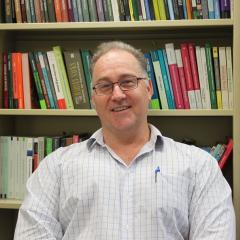
UQ School of Languages and Cultures (SLC) researcher, Associate Professor Zane Goebel and previous SLC PhD student, Dr. Udiana Puspa Dewi, have been awarded a significant engagement grant from the Australia Indonesia Institute for their project, ‘Flooding youth futures: Australian and Indonesian climate change adaptation stories.’
The project aims to address five inter-related areas, including Australia-Indonesia relations, Indonesian language teaching in Australia, youth voice on climate change, rain induced flooding in Australia, and tidal-induced flooding in Indonesia.
“What ties these five areas together is the need to nurture the next generation of Indonesia-literate young Australians,” says Goebel. The project aims to start rectifying this imbalance by providing a voice for this group who have the most to lost from environmental change.

The project was inspired by the need to incorporate stories of environmental degradation in Indonesia into the final Indonesian language course (INDN3002) and our desire to give back to the Indonesian community more generally, especially since they have supported our research and teaching for decades. “We were especially drawn to tidal flooding because it was occurring in areas that he was intimately familiar and occurring at a scale and pace that was truly frightening”.
The project will unfold over five main stages, including getting ethics clearance, recruiting and training volunteer students, recruiting youth who have had experiences of flooding, interviewing them and working with them on the curriculum material, and a project evaluation.
Dr. Goebel and Udiana, trained in linguistic anthropology, plan to audio-visually record interviews with youth impacted by flooding events. “Our project is thus informed by our training, and we seek to audio-visually record interviews with youth impacted by flooding events,” says Goebel.
The researchers acknowledge the challenges of accurately representing the diversity of youth populations and the limitations around accuracy in interviews. Even so, all research, teaching and engagement needs to start somewhere. So, as a first step they plan to turn the audio-visual recordings into YouTube videos with English and Indonesian subtitling, subject to participants’ and ethics committees’ agreement.
The project hopes to have long-term impacts on youth empowerment and resilience in the face of climate change-related challenges. In addition to providing a situation where Australian-Indonesian youth and our potential future leaders can network and jointly discuss these problems, the project may provide a model for others interested in bilaterally engaging with matters of environmental degradation caused by tidal flooding.
For more information about the project or to get involved, please contact the researchers.
- Associate Professor Zane Goebel: z.goebel@uq.edu.au
- Dr. Udiana Puspa Dewi: udewi@binus.edu



